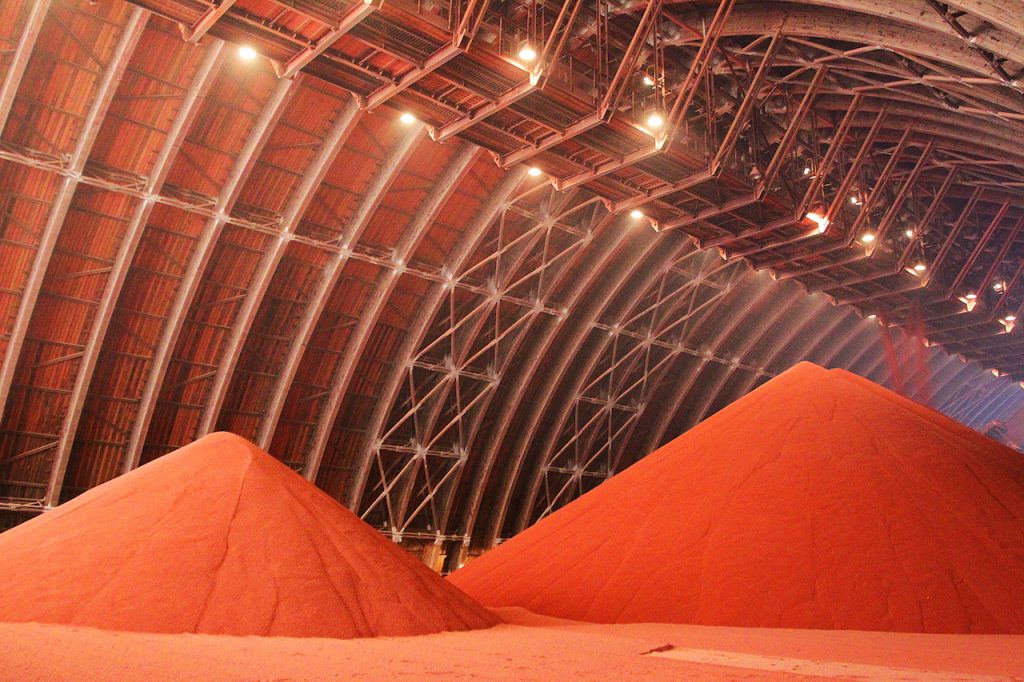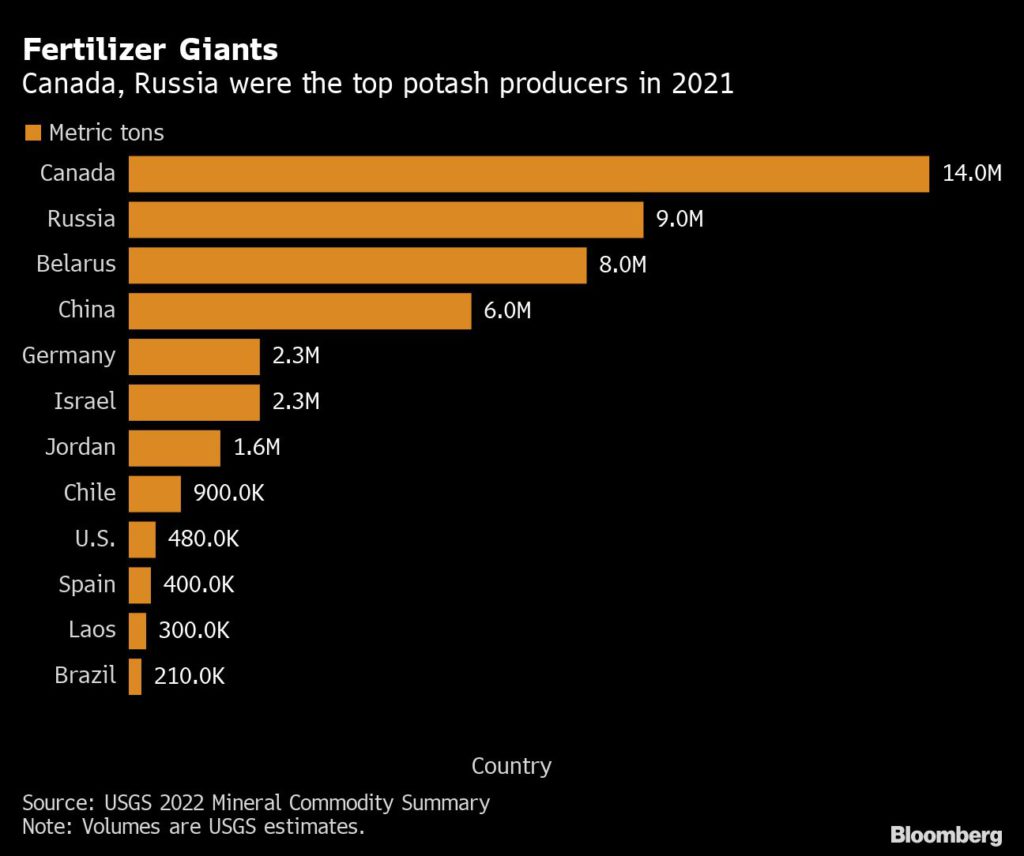Belarusian potash force majeure adds to global fertilizer chaos

A Belarusian potash miner that accounts for a major chunk of global supply has declared force majeure, shaking up a market that’s already contending with soaring prices.
Belaruskali said around Feb. 16 that it won’t be able to meet its contracts, according to a letter from an exporter addressed to clients seen by Bloomberg. Shipments have been halted as a result of U.S. and European sanctions.
The absence of Belarusian supplies will have big consequences. Potash is a key nutrient for major commodity crops like corn and soybeans, as well as produce. Fertilizer prices have already skyrocketed as soaring natural gas costs forced some European plants to halt or curtail production, and U.S. spot prices for potash in the Corn Belt have nearly doubled in the last year. Expensive fertilizer is making food more costly to produce and contributing to rising global inflation for consumers.
“This is a fairly unprecedented situation in the potash market,” CRU Group analyst Humphrey Knight said by phone. “It could take many months if not longer for that supply to recover.”

Belarus exports about 10-12 million tons annually, according to Green Markets data. The country accounts for about a fifth of global supply. It’s a major shipper to Brazil, as well as to India and China.
“Global potash contracts have settled at the highest price since 2008, ensuring another year of pricey inputs for farmers and strong earnings for producers,” Alexis Maxwell, an analyst Green Markets, a company owned by Bloomberg, said in an email. “U.S. sanctions on Belarus eliminated a key competitor” with no readily available alternative supplier.
The U.S. sanctions against Belaruskali, Belarus’s only potash miner, came into force in December, while penalties against Belarusian Potash Co., which exports all the potash from the country, should become effective April 1.
The sanctions may result in shifting trade flows and some demand rationing, Nutrien Ltd. interim Chief Executive Officer Ken Seitz said in an interview. Customers who have historically purchased from Belarus are trying to secure supplies elsewhere. For example, Russia is doubling fertilizer quantities offered to Brazil, Brazilian President Jair Bolsonaro said during an interview to Radio Jovem Pan Thursday.
Belarusian President Alexander Lukashenko discussed the potash sanctions with Russian counterpart Vladimir Putin, he said during a televised joint news conference in Moscow. Putin ordered a port to be built near St. Petersburg for exports of the nutrient, Lukashenko said, adding that Belarus expects to start loading “millions” of tons of cargo there within 1 to 1 ½ years.
CRU’s Knight said that Russian ports were likely the only option left for Belarusian Potash Co. to export, but most are already operating at capacity. While some Belarusian potash could be rerouted to the Russian market, pushing Russian companies to export more, the volumes would be small, he said.
Nutrien has an additional half million tons of capacity that would be available in the latter half of 2022 if needed, Seitz said. Grower margins are strong, so higher potash prices won’t result in less demand.
The company could also ramp up potash output, but first, it would need to see a prolonged impact on the market for “years” to bring on additional sustained capacity, Seitz said. Nutrien increased its potash capacity by 1 million tons in 2021 and additional volumes are expected to come online in 2022 from other companies, he said.
“We’re not standing around saying we’re not doing anything,” Seitz said, noting the company doesn’t want to be left with additional cost if supply challenges go away quickly. “We are bringing on volumes.”
Nutrien anticipates global potash shipments will be between 68 million tons and 71 million tons in 2022.
The potash situation in Belarus is bleak, Scotiabank analyst Ben Isaacson said in a note. Nutrien will benefit not only from the higher prices, but also from being able to leverage their volume of the crop nutrient.
“Nutrien is now in the driver’s seat for how high potash prices go this year, while Belaruskali will determine how low they go,” Isaacson said.
(By Elizabeth Elkin, Jen Skerritt and Tarso Veloso Ribeiro, with assistance from Aliaksandr Kudrytski, Yuliya Fedorinova, Dominic Carey, Chloe Whiteaker and Aine Quinn)
{{ commodity.name }}
{{ post.title }}
{{ post.date }}




Comments